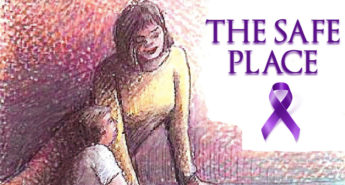 February is National Teen Dating Violence Awareness Month (TDVAM). All month long, organizations and schools around the US are coming together to educate teens on dating violence and red flags to look for in relationships. Every year about 1.5 Million high school students admit to being in a physically abusive relationship. Most of the time, their friends know about the relationship as well.
February is National Teen Dating Violence Awareness Month (TDVAM). All month long, organizations and schools around the US are coming together to educate teens on dating violence and red flags to look for in relationships. Every year about 1.5 Million high school students admit to being in a physically abusive relationship. Most of the time, their friends know about the relationship as well.
According to loveisrespect.org, 1 in 3 teens will experience physical, sexual, or emotional abuse by someone they are involved with before they become an adult and almost two thirds of them do not report it to anyone. Also, nearly half (43%) of college women reported experiencing violent or abusive dating behaviors. With these numbers so tragically high, TDVAM was developed to help teens and parents to be able to start a conversation about safe dating habits and what habits to avoid. As a parent, there are many things you can do to help your teen avoid abusive relationships.
- Teach and model healthy relationships. Most abuse is a learned behavior and a lot of people in abusive relationships stay because they find some sort of normalcy in being abused. If your child knows and can see what a healthy relationship is supposed to look like, it will be easier for them to spot the red flags in their relationship and make it easier for them to get out when they need to.
- Listen and give support. It can be easy to get overwhelmed or mad if you hear your child has been in an abusive relationship. Try not to over-react, blame them, or accuse them of anything. Also, do not show skepticism or disbelief. They need all the support they can get at this time and need you to be there for them – it took a lot of courage to even open up about it. Make sure you are showing concern and letting them know they didn’t deserve anything that happened to them. It can be easy for teens to believe all the bad things their partner has told them, so they need to hear that they were right and the abuser was wrong.
- Talk about behaviors and not their partner, per say. If you think your child might be in an abusive or controlling relationship, ask if it bothers them that their partner texts them constantly instead of saying just coming out and saying that their partner is controlling and you don’t like them.
- Avoid ultimatums such as taking their phone away or grounding them. If you do this, it makes your child lose support of their friends (and they could feel like they are losing your support too), but it will also make them less likely to open up to you in the future.
- Be prepared for the conversation. Sitting down and talking about a subject like this can be very difficult. Educate yourself on unhealthy relationships and the signs to look for and share this with your children. Share articles or quizzes from loveisrespect.org and then follow up with them to see what they are thinking or how they are feeling about what you taught them and what they read. Starting the conversation is the most important part.
Once you are both educated on the subject and talk about it, it will help in making the next decision together easier. Maybe your child just needs to know what to look out for, maybe they or someone they know has been in a situation like this and you want to work together to get them out of the relationship. Whatever the decision is, it is important that it is made together and that your child knows you are there for them if they are ever in need.
Together, we can put an end to Teen Dating Violence. If you or anyone you know is a victim of teen dating violence or domestic violence contact The Safe Place at 501-354-1884. You can also call the Crisis Line at 1-888-554-2501 or our Perryville location at 501-889-2030.




Leave a Reply